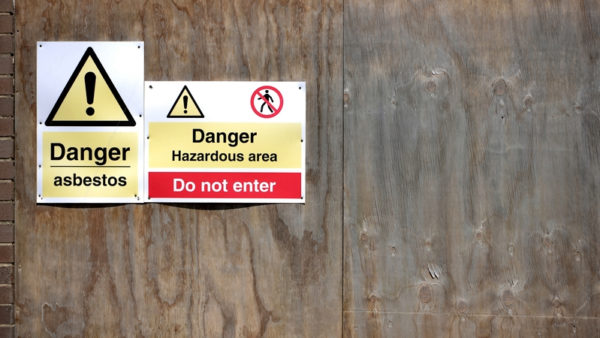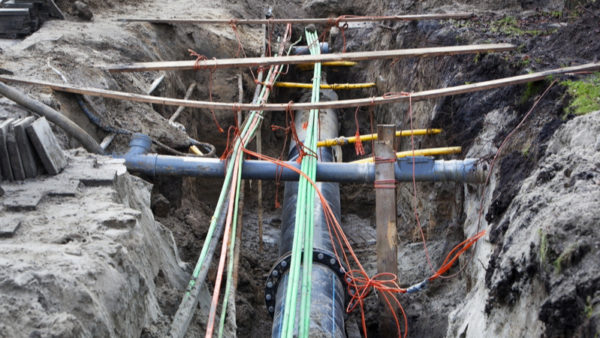Coronavirus has revealed that the impossible is not only possible, but normal – and this can allow construction to find a way forward, says Balfour Beatty chief executive Leo Quinn.
There have been sweeping changes across the construction and infrastructure industry to allow it to respond to the impacts of covid-19. It has been a steep learning curve for all of us, but we have risen to the challenge. We can be proud of our response as a sector. We have been forced to examine every element of how we operate and to completely reinvent the wheel in some areas, bringing in a number of radical changes – some of which were frankly overdue.
In some areas, the impossible has suddenly become not only possible, but normal.
And this may be where the construction and infrastructure industry finds its silver lining. We do not know exactly where we will be months and years down the line, but now is the time to grasp the nettle and to examine which of the changes the sector should retain and build on so it is fit to face what the future holds. Some of these, for example, as we adopt new working patterns and approaches, will result in a welcome cultural shift, opening up doors which have been closed to many people and helping to make the sector a more inclusive, diverse place.
It is time to pick ourselves up and dust ourselves off. We must be bold and resolute. We must keep the mindset of recent months which has allowed us to adapt with agility and constantly question old habits, with technology as the enabler.
The mindest which will support us relentlessly moving forward to thrive in the new normal and ensure that we keep delivering for our customers, whatever the obstacles. That mindset will be the positive legacy on the lessons of lockdown.
Nine key ways construction can move forward:
- The government should consider establishing a body to oversee and drive through to delivery schemes which are prioritised as being in the national interest as part of the economic recovery. Schemes such as renewable energy, zero emission transport infrastructure and large-scale housing developments are controversial and can face years of delays.
- Government and others should also bear in mind that, while new schemes can have long lead times, vital upgrades, renewal and maintenance of existing assets can be much quicker to implement because gaining approval for them is usually much less complicated. These schemes are just as successful at pump-priming local economies across the regions and local communities of the UK, and often have supply chains already in place which can be quickly scaled up.
- Those commissioning infrastructure and the industry itself must use this crisis, with its ongoing social distancing requirements to finally pave the way for the adoption, at scale, of prefabricated, offsite, modular construction and other modern methods of construction (MMC). The government and its agencies and arms-length bodies should all implement a presumption in favour of these approaches as a default, to accelerate change. The industry will only invest fully in these approaches if customers are committed to them.
- The industry has the chance now to bring about lasting, positive change by modernising working practices across the sector. Measures should include remote working, flexible working patterns, and a greater commitment to staff working 3 or 4 days a week and to job sharing. Customers must ensure that there is enough flex in the way contracts are drafted to support different working styles, something which is not currently always the case.
- To help the industry address its skills shortages, there is potential to attract, retrain and deploy highly skilled engineers from other harder hit sectors which will experience a slower recovery, for example, the aviation and automotive industries. Given that many of these people will come from industries which are more advanced in terms of automation, this would play to the construction industry’s need to modernise. However, capitalising on this will require some flexibility in terms of considering which skills are transferable and which areas will require some retraining.
- Businesses across the sector must remain committed to apprenticeship and graduate programmes to ensure that the industry is in a position to recover and that it is resilient over the long-term, ideally committing to having 5% of their workforce in ‘earn and learn’ positions (including apprentices, sponsored students and graduates on formalised training schemes) and joining the employer-led organisation The 5% Club. We must not retreat from our responsibility to young people.
- Cooperation across the industry and close working with government have increased as we all united against the common threat that is covid-19. This very welcome wider understanding and cooperation is something we should build on as we move into the post-pandemic period through regular, open dialogue between a wide representation of the industry and government.
- Given the budgetary pressures the public sector will be facing following covid-19, there is likely to be a temptation to undo the baby steps which have been taken to move away from a focus on lowest price in bids and to begin to drive costs back down to undeliverable levels. This approach is ultimately unsustainable and must be resisted by those commissioning infrastructure. The hidden cost is that it damages the sector over the long-term and hampers its role as a job-creator.
- To allow the sector to play its role in rebuilding the economy, the issue of risk must be addressed – both by the industry’s key customers, and by the sector itself. Commissioners must stop driving down the price below what it costs to deliver schemes: driving down costs generally actually increases the final price.
Leo Quinn is chief executive of Balfour Beatty.









